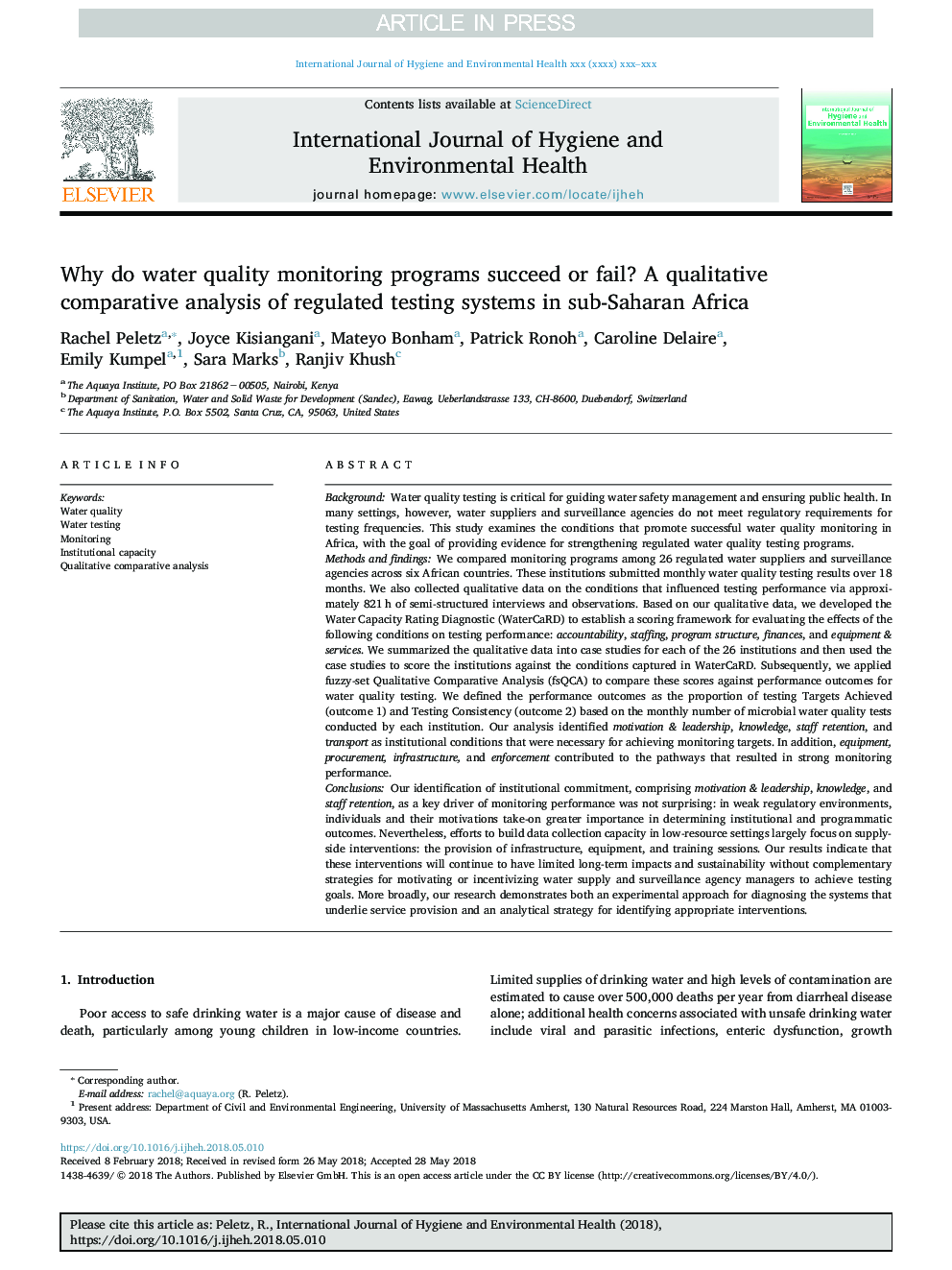| Article ID | Journal | Published Year | Pages | File Type |
|---|---|---|---|---|
| 8549459 | International Journal of Hygiene and Environmental Health | 2018 | 14 Pages |
Abstract
Our identification of institutional commitment, comprising motivation & leadership, knowledge, and staff retention, as a key driver of monitoring performance was not surprising: in weak regulatory environments, individuals and their motivations take-on greater importance in determining institutional and programmatic outcomes. Nevertheless, efforts to build data collection capacity in low-resource settings largely focus on supply-side interventions: the provision of infrastructure, equipment, and training sessions. Our results indicate that these interventions will continue to have limited long-term impacts and sustainability without complementary strategies for motivating or incentivizing water supply and surveillance agency managers to achieve testing goals. More broadly, our research demonstrates both an experimental approach for diagnosing the systems that underlie service provision and an analytical strategy for identifying appropriate interventions.
Related Topics
Life Sciences
Environmental Science
Health, Toxicology and Mutagenesis
Authors
Rachel Peletz, Joyce Kisiangani, Mateyo Bonham, Patrick Ronoh, Caroline Delaire, Emily Kumpel, Sara Marks, Ranjiv Khush,
